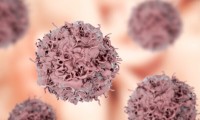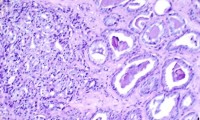-
Cytokinetics Heart Drug’s Trial Data Look Competitive With BMS Med Camzyos
- Source: drugdu
- 152
- December 29, 2023
-
BMS agrees to acquire Karuna Therapeutics for $14bn
- Source: drugdu
- 209
- December 28, 2023
-
M&A saw an uptick in 2023. Analysts expect the trend to continue
- Source: drugdu
- 230
- December 26, 2023
-
Deerfield Agency names Sam Cannizzaro as first chief creative officer
- Source: drugdu
- 148
- December 25, 2023
-
GSK Expands Again in Cancer, Paying Hansoh $185M for Another ADC
- Source: drugdu
- 206
- December 22, 2023
-
Chiesi Rare Skin Disease Drug Acquired in Billion Dollar Deal Wins FDA Approval
- Source: drugdu
- 101
- December 21, 2023
-
Illumina’s Antitrust Battles to End With Divestiture of Cancer Test Maker Grail
- Source: drugdu
- 103
- December 20, 2023
-
Point Bio Prostate Cancer Therapy Meets Phase 3 Goal, But Results Still Disappoint
- Source: drugdu
- 99
- December 20, 2023
-
Glaukos wins FDA approval for drug-releasing eye implant to treat glaucoma
- Source: drugdu
- 94
- December 19, 2023
-
Arcutis’ Zoryve bags 2nd FDA nod, this time as a foam to treat ‘the great neglected disease in dermatology’
- Source: drugdu
- 89
- December 19, 2023
your submission has already been received.
OK
Subscribe
Please enter a valid Email address!
Submit
The most relevant industry news & insight will be sent to you every two weeks.













